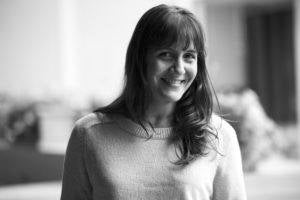
With 83 graduates since its inception in 2014, the DrPH Program has developed an illustrious, talented group of public health professionals who have taken their DrPH degree and have become public health leaders.
We recently reached out to Vanessa Brizuela, DrPH ’18, to find out where her public health career has taken her and the current work she is doing!
- Where are you currently located?
Vanessa: I’ve been in Geneva since DELTA (also known as the Doctoral Project)! Even throughout the pandemic.
- Where are you currently working and a brief description of your job?
Vanessa: I am currently working at the World Health Organization headquarters. I am a Technical Officer at the UNDP/UNFPA/UNICEF/WHO/World Bank Special Programme of Research, Development and Research Training in Human Reproduction housed within the Department for Sexual and Reproductive Health and Research at WHO. Within HRP, I coordinate the work of the HRP Alliance for research capacity strengthening, an initiative which is part of HRP’s core mission to strengthen research capacity among institutions located in low- and middle-income countries working in sexual and reproductive health and research.
- The 4 pillars of the DrPH Program are leadership, management, communication, and innovative thinking. Which of the pillars (if any) do you use most in your new position and how did the program prepare you for it?
Vanessa: I would say all four. As the lead person for this Alliance of hundreds of institutions working primarily through seven hubs located across the world, managing workplans and developing new ideas for successful, sustainable, and equitable research capacity, I am constantly using skills in all those aspects. In addition, I continue to work on my research portfolio around maternal infections and sepsis (topic I worked on for my DELTA) as well as other quality of maternal and newborn care issues. As part of HRP’s Outbreak Response Team, I am engaged in the development of evidence and recommendations relating to SRHR and COVID-19, and in the design and implementation of research studies answering questions around the impact of the pandemic on SRHR.
- If you are in a management position, what would you look for if you were hiring new graduates from the DrPH Program?
Vanessa: Given the technical aspects of my work, I would look for individuals with research experience (as demonstrated through publications, for example) as well as knowledge of research capacity strengthening efforts. I currently supervise a person who recently completed their DrPH (in another university) but that has both the technical research skills and the management skills needed for the type of work.
- If you could do things all over again, would you choose the same path for yourself? Why? What would you change?
Vanessa: I am quite pleased with where I am and the work I do and I thoroughly enjoyed the DrPH programme. I was asked during my thesis defense whether I thought I should have completed a PhD programme instead of a DrPH given my interest in research. I think the DrPH programme provided me with the necessary research skills I need to do the research I do, so at the moment I think I am happy with my decisions.
- Is there any work/document/article that you are currently working on that you’d like to promote? Our current students would love to find out what our alumni are currently working on.
Vanessa: I recently published my latest analysis on data from the Global Maternal Sepsis Study (which is what brought me to WHO and what I completed my DELTA on) and there are several other analyses coming out of this work including a new paper published a couple weeks ago and another currently under review. September 13th was World Sepsis Day and we did some Twitter outreach as well as outreach through the study’s website on the different materials coming out of the study. I also recently published an article that builds on an initiative that I designed and implemented involving a call for research proposals responding to the mass migration crisis in the Americas. There are also a series of living systematic reviews that are being published (or under review) on COVID-19 and pregnancy. The data obtained from this have been included into SAGE and other WHO recommendations.
Lastly, I was recently interviewed by Sanyu Sisters, a podcast led by two researchers completing their PhD at University of Liverpool in the UK. Season 2 of their podcast is called “Hear Her – Pioneers in International Health” and my interview focuses primarily on my trajectory and my journey into this field.
If you would like to connect with Vanessa Brizuela, please visit her LinkedIn profile here.



